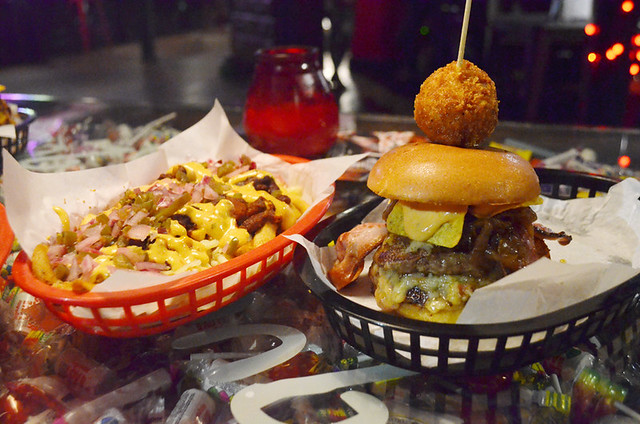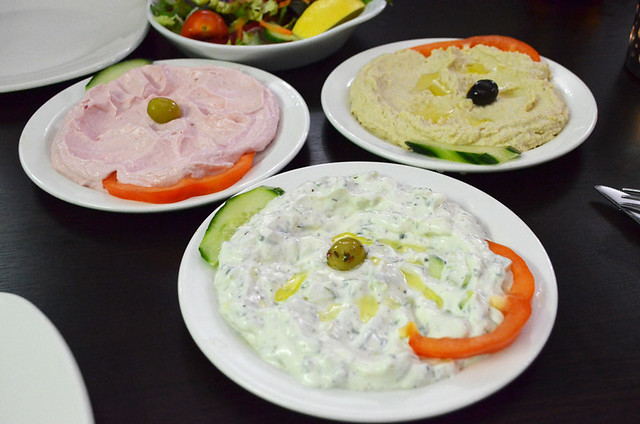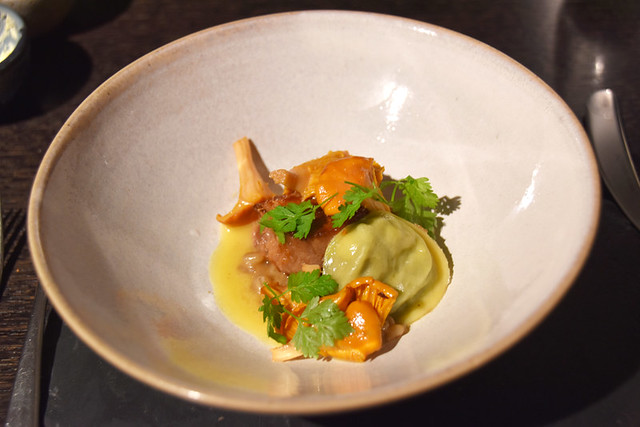Food in Britain is boring.
I’ve lost count of the number of times I’ve heard a variation of this statement in online travel discussions. When I hear the evidence generally provided to back it up, I tend to wonder about the travel habits of those who make it. Sometimes the rationale leaves me open-mouthed, as was the case in a bar in New York when a musician from Boston complained about the food his band was fed on a tour in Britain. “Those cucumber sandwiches don’t taste of anything and don’t fill you, and there was no way I was eating squirrel.”
Squirrel? Where the hell was he touring? I’d sack my agent if I was him.

The latest cause for an attack of bafflement was on a forum especially for travel destination experts, people who dish out advice to would be travellers. One started a thread about British food being boring, moaning that every time they ate out, the choice invariably involved fish and chips, burgers, steak, and maybe a pie of the day. “Why can’t chefs be more original?” They asked.
Some of the responses from British contributors didn’t really to much to help the cause of the ‘I disagree’ corner. It got me thinking about our culinary experiences during visits to Britain and how they compared to recent statistical trends.

At the end of 2018, domestic appliance specialists Belling published the results of a survey of 2000 Brits which listed the currently favourite family meals and compared these findings to previous decades.
In the 1960s the top five were 1. Sunday roast 2. Fish fingers 3.Roast chicken 4. Beans on toast 5. Roast beef.
Now it’s 1. Spaghetti bolognese 2. Pizza 3. Roast chicken 4. Fish fingers 5. Fish and chips.
Seriously? After years of feeding on a diet of gourmet cooking programmes on British TV, are folk actually still eating fish fingers?
Round one to the British food is boring corner.

Next up was a YouGov survey of nearly 6,500 Brits relating to how they ranked classic British dishes.
Top favourites were Yorkshire pudding, Sunday roast, fish and chips, crumpets, full English breakfast, and bacon sandwiches.
It’s not exactly an inspired list.
Least favourite (‘crap tier’ to quote the survey) were steak and kidney pudding, black pudding, kippers, liver and onion, haggis, faggots, laver-bread, and jellied eels.
The crap tier includes some of my classic Brit favourites.
Round two also goes to the British food is boring corner.

The BBC Good Food Guide regularly carries out dining trend surveys. In a survey of 5000 people in 2016, Britain’s favourite dishes were 1. Sunday roast 2. Curry 3. Pizza 4. Pasta 5. Steak and chips.
At least with curry and pasta in there, both covering a multitude of dishes, there’s some evidence of diversity in the British dining scene. The jury is split on that one.

A Compare the Market survey toward the end of 2018 provides more evidence of the diversity on British streets.
Top ten choices for dining out were 1. Pub grub 2. Italian 3. Chinese 4. Indian 5. American 6. Mexican 7. Thai 8.Spanish 9. Mediterranean 10. French.
Try notching that selection up in the average town in many other European countries.

The BBC Good Food Guide also predicts up and coming food trends each year. For 2019 these included the rising popularity of Sri Lankan cuisine, Burmese food, meat free dishes, and hidden vegetable meals.
They also list foodie items Brits buy which they didn’t a decade ago. The top five are mozzarella, Greek yoghurt, chorizo, olives, and houmous.
Contrast both of those with the dull and dated contents of the first survey quoted.

As for our culinary experiences in various parts of Britain over the last few years, ranging from Devon to Manchester, York to Glasgow, and from London to Hay on Wye, we’ve been generally impressed with the variety, creativity, and quality of grub we’ve devoured along the way, mainly in pubs, inns, and food markets and usually accompanied by craft ales.
In September 2019 we took a road trip around the Highlands of Scotland which was also a gastronomic voyage, taking in classics (fish and chips, venison pies), modern takes on classics (haggis bon bons in Irn Bru sauce), Michelin quality fare (hand dived scallops with sea bacon and barbecued celeriac) and influences from beyond Britain’s shores. I never imagined for a second I’d ever be able to buy baba ganoush from a takeaway on my home island of Bute.

Our experiences prove to us the food in Britain isn’t boring at all, quite the opposite. Having lived in two different European countries, we’re excited by the culinary choice ahead of us anytime we return to Britain. But that doesn’t mean there’s not a lot of mediocre and dull nosh out there. Of course there is. But whether people are faced with boring menus or encounter creative delights depends very much on a couple of things – personal preferences and research skills. When it comes to food, like it is with so many things, Britain is split.
Another comment on the ‘Is food in Britain boring?’ thread revealed why for some people it is and for others it isn’t.

The person who commented bemoaned the fact hotels abroad only catered for British diners. Their perception seemed to be that all hotels everywhere catered just for dull British palates, and trying to get anything with local flavours was a challenging task. It’s an extraordinary belief. They didn’t think for a second their views were formed because the particular hotels they chose to stay obviously served food aimed at the British market they attracted, maybe even were built for. Just as it never occurred to the person who posted the original question that the reason they were always faced with menus featuring fish and chips, burgers, steak etc. was because they always picked the sort of pubs which served that type of food.
Is anything boring? The answer to that often lies in the mirror.




Be the first to comment